Galp and AIESEC launch training program for young Mozambicans
Mozambique waives financial benefits for ENI and partners to initiate US$8 billion investment in natural gas

The Italian multinational ENI signed its Cabo Delgado Coral field US$ 4.6 billion final investment agreement with partners CNPC, Kogas, Galp and the Mozambican state National Hydrocarbons Company last Thursday, May 1.
But for the realisation of this unprecedented project, thought to be worth US$8 billion in total, Mozambique has had to sacrifice initial financial benefits and the first revenues coming from the project are already mortgaged to pay the debts of Proindicus, Ematum and MAM, A Verdade reports. Paradoxically, the ceremony took place in the city of Maputo, with Cabo Delgado, the province where the resources will be exploited, only sending its governor, who was not even invited to speak.
“It was not our decision, but in the future the events will happen in Cabo Delgado, in fact we work in Cabo Delgado, it is rare to come here,” Claudio Descalzi, the deputy administrator of the Italian oil company said. He explained that although there will be indirect business opportunities for local small and medium-sized enterprises, there will be “many more opportunities” when ENI starts construction of another onshore gas production plant in the Mamba complex.
This project, however is still in the feasibility stage, and any final investment decision is unlikely to be taken this year or in 2018.
Descalzi said the US$4.8 billion investment, financed by 15 banks (3 national and 12 international), plus the US$3.2 billion investment from concessionaires for the remaining infrastructure, concerns the Coral South field, and will generate US$16 billion in tax revenues for the Mozambican treasury over 25 years.
Government gave in to pressure and granted more tax benefits
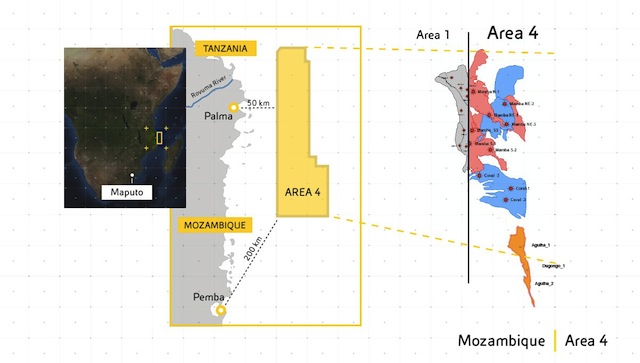
These billions in receipts will however not begin to flow into state coffers until 2022, when the production and the export of gas is due to begin. “We had to decide on the sale of almost all production to a single purchaser, and to a relatively small degree we sacrificed the financial benefits in the first phase, and also sacrificed the gas supply to the domestic market,” President Filipe Nyusi said in his speech.
The sacrifices referred to by the head of state relate to the decision to change, for the benefit of multinationals, the legislation on the Specific Taxation and Tax Benefits of Petroleum Operations, as well as the Specific Taxation and Fiscal Benefits of Mining.
Specifically, the Nyusi government agreed to grant a longer period of “fiscal stability”, a decision taken at the Council of Ministers meeting last Tuesday (May, 30), which is currently set to “10 years after approval of a development plan”, A Verdade has learned.
After this tax benefits phase, the first tax revenues actually collected by the government are expected to be used to pay the debts of Proindicus, Ematum and MAM, now estimated at just over US$2 billion, but this value is expected to increase as a result of the accumulation of interest.
Mozambicans will see many ships passing by but little business coming from Coral South

“This venture marks the beginning of the transformation of Mozambique’s strategic resource into money, although not immediately, but the network for this is well-launched,” President Nyusi said in his address.
But little of the billions generated will go to Mozambicans.
For example, at a ceremony in the capital’s best hotel, contracts were signed for the construction of a floating natural gas liquefaction plant, which will transform natural gas extracted at sea for export in ships. None of the contractors is Mozambican.
For example, among those signing contracts in the capital’s best hotel for the construction of a floating platform to liquefy natural gas extracted at sea for export in ships, none were Mozambican.
Mozambicans will surely see many ships going by, as they have seen the Inhambane pipelines heading to South Africa and the Moatize trains heading to ports. The economy will grow once again, but Mozambicans will remember that the economic growth of the recent past not only did not end poverty but also generated more.
Though it is certain that islands of development will be born around this and other gas exploration projects in the Rovuma Basin, judging by the political decisions that are being taken, it is very likely that the money generated will remain in the hands of the usual political elite and little will remain for the people of Cabo Delgado. No Cabo Delgado business person or representative, was present at the launch event. Only Governor Celmira da Silva represented the northern province at the launch, and she did not speak.
By Aderito Caldeira



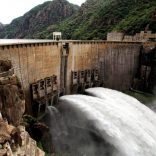

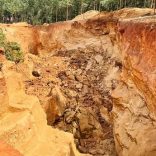

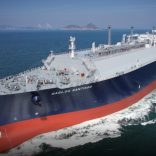



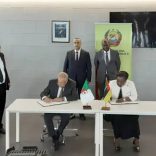

Leave a Reply
Be the First to Comment!
You must be logged in to post a comment.
You must be logged in to post a comment.